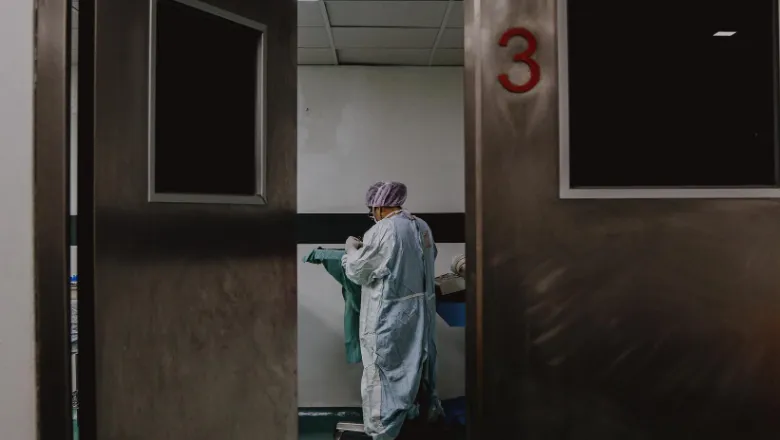As we approach the upcoming winter flu season, along with the threat of resurgent cases of COVID-19, it is possible that our hospitals will come under great pressure. To handle this, we need to equip our doctors with the tools to make informed judgements about which patients are likely to improve and who might need more urgent care.
Professor Adrian Hayday, from The School of Immunology & Microbial Sciences
20 August 2020
Three molecules could predict the severity of COVID-19 in patients
A common immune signature in the blood patients has been found, which could be used to predict how severely ill a patient will become.

The findings, published in Nature Medicine, by a team from King’s, researchers at the Francis Crick Institute, and Guy's and St Thomas' NHS Foundation Trust, believe the findings could aid patient management.
The team analysed blood samples from 63 patients with SARS-CoV-2, the virus that causes COVID-19, and who were treated at Guy’s and St Thomas’, London. The researchers identified three molecules that could indicate how the disease will progress - what the researchers are calling the “triad”, made up of IP-10, interleukin-10 and interleukin-6.
Patients with COVID-19 who displayed higher levels of these molecules when first admitted to hospital went on to become more severely ill.
In addition, they found that within their patient cohort, measuring levels of IP-10 in blood taken on the first day in hospital was the most accurate way to date of predicting how long the patient would remain in hospital. The researchers are now looking to new collaborators to help develop robust, easily applied tests for these molecules.
Dr Manu Shankar-Hari, Reader and Consultant in Intensive Care Medicine at the School of Immunology & Microbial Sciences, said: “This partnership is a great example of how researchers and clinicians have worked together at speed during this pandemic. We’ve seen how bringing these specialisms together, working side-by-side, has opened up a greater understanding of this disease and how the body responds.
“With so much uncertainty for the months ahead, it’s vital that we apply this knowledge to give every patient the best chance of a full recovery.”

